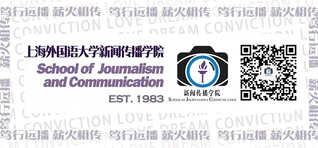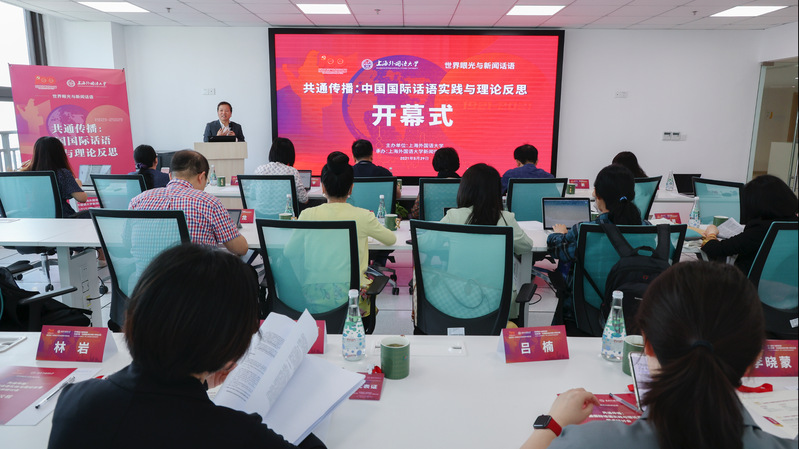
Twenty two experts from top universities gathered in Songjiang on May 29 for a discussion on China’s standing in the world and media strategies in the ever-changing field of public opinion and global communication.
The seminar entitled “Communication for Commonness: Theory and Practices of China’s International Discourse” has been sponsored by the School of Journalism and Communication (SJC) of Shanghai International Studies University (SISU), as a part of the SISU conference themed “World Vision and Global Discourse.”
Professor Zeng Xiangmin from the Communication University of China kicked off the discussion with a presentation on the evolution of Chinese international media discourse. He noted that, when faced with smears from other countries, China's foreign ministry and media tend to respond in a tit-for-tat manner, leaving Chinese people all fired up and proud, but inflicting little more than a tiny scratch on the other side. He said that “an international communication system with both inbound and outbound influence” is urgently needed.
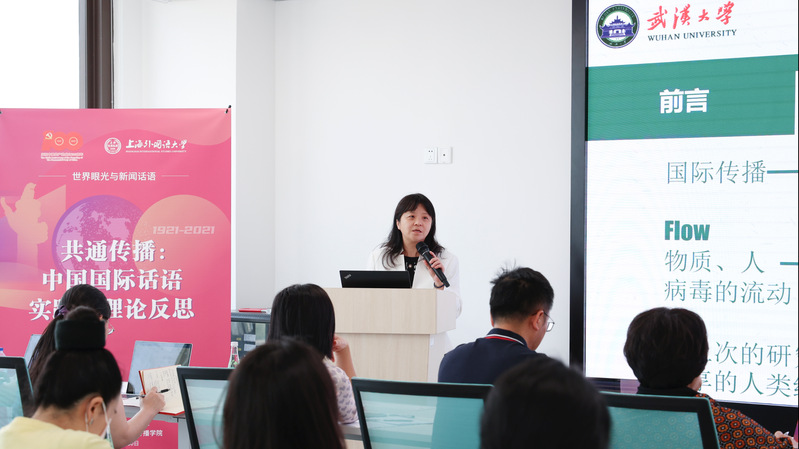
Professor Ji Li, who returned from the United States last year, illustrated deliberate smears and biases against China in U.S. news, and pointed out that during the worst months of the COVID-19 pandemic, people moved around less physically, but information spread faster than ever.
She added that “China must take the initiative to construct its own discourse system and not be trapped by the western dominance of international public opinion. To put it in a nutshell, we must get our side of the story across.”
Participating experts agree that Chinese scholars should first learn about western theories and technological platforms for better academic research while also explore their own theoretical frameworks and research paradigms in the Chinese contexts in order to construct an effective discourse system that can better interact with the international community.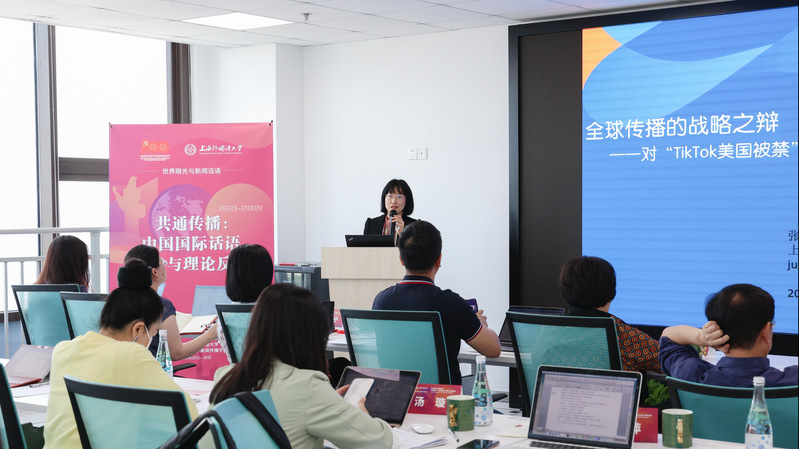
Other experts drew on their recent studies and talked about Trump’s TikTok ban last year, U.S sanctions on Huawei, and the “human rights” debate over Xinjiang cotton.
Professor Hong Yu from Zhejiang University examined the digital attacks on China, focusing on the industrial chain of technology enterprises. She noted that geopolitical considerations affect the otherwise neutral and fair rules of commercial transactions, arguing that national policies should become one of the focuses of future international communications studies.
China-related topics are currently at the core of discussion in the international academic community, but it should be admitted that western countries are still dominating the public opinion sphere in the world.
Echoing that, Dr. Sun Ping from the Chinese Academy of Social Sciences suggested that “China needs to create its own international journal to break the academic dominance of Western countries.”
Professor Guo explained that SISU will initiate an open-access English journal named Online Media and Global Communication. He hopes the journal can create a platform for academics across the world to engage in interdisciplinary research on global communication, encompassing politics, history and culture in the international context.
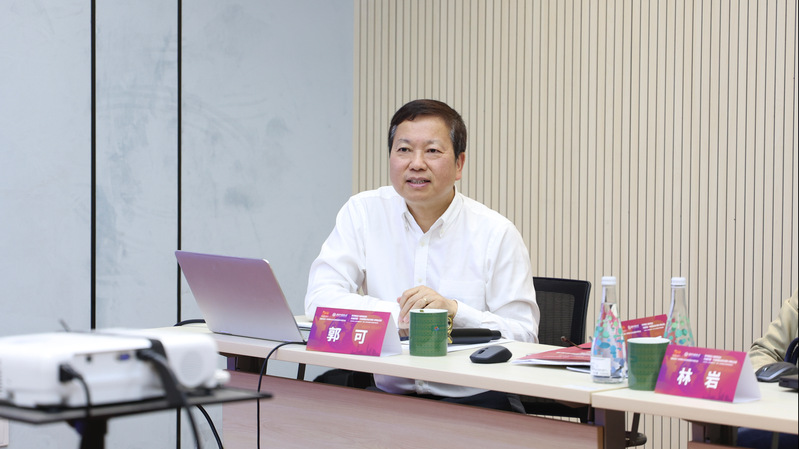
Guo added that academics in China may want to apply China’s performance-based model in the past 40 years of social development to explore the theoretical framework and develop theoretical paradigms based on a panoramic view of ever-changing narratives of global communication.

 |Hongkou Campus|550 Dalian Road (W), Shanghai 200083, China |Songjiang Campus|1550 Wenxiang Road, Shanghai 201620, China
|Hongkou Campus|550 Dalian Road (W), Shanghai 200083, China |Songjiang Campus|1550 Wenxiang Road, Shanghai 201620, China